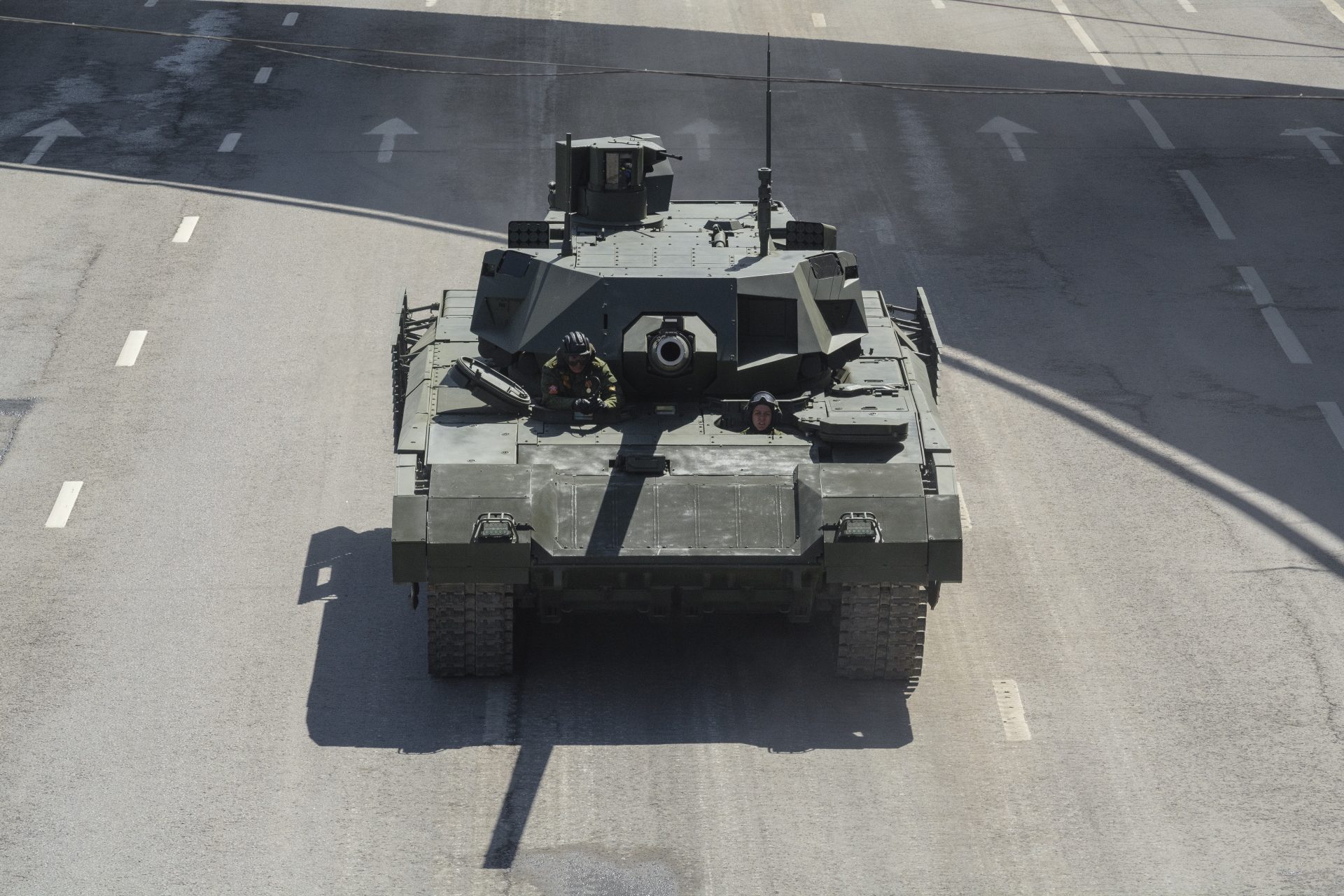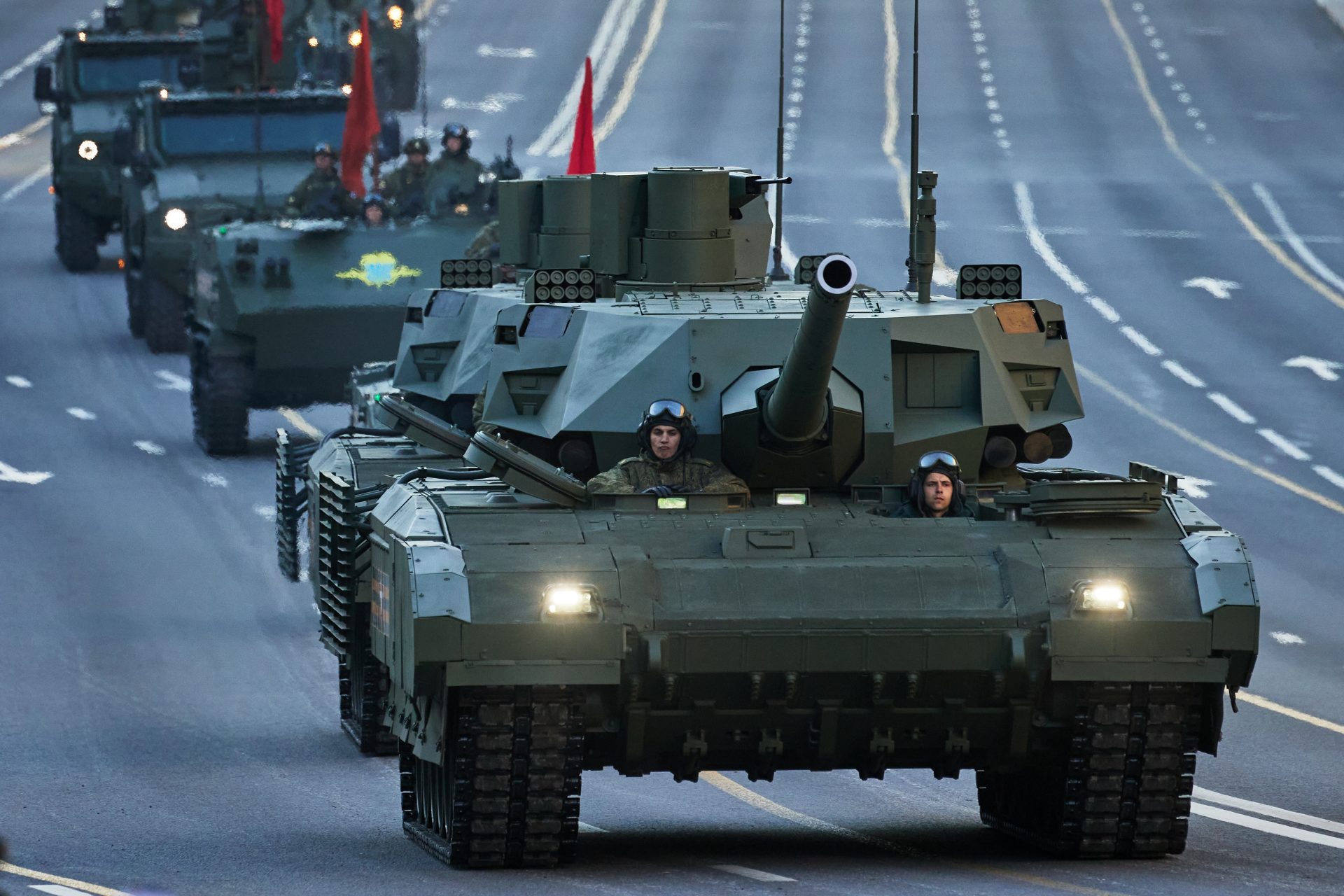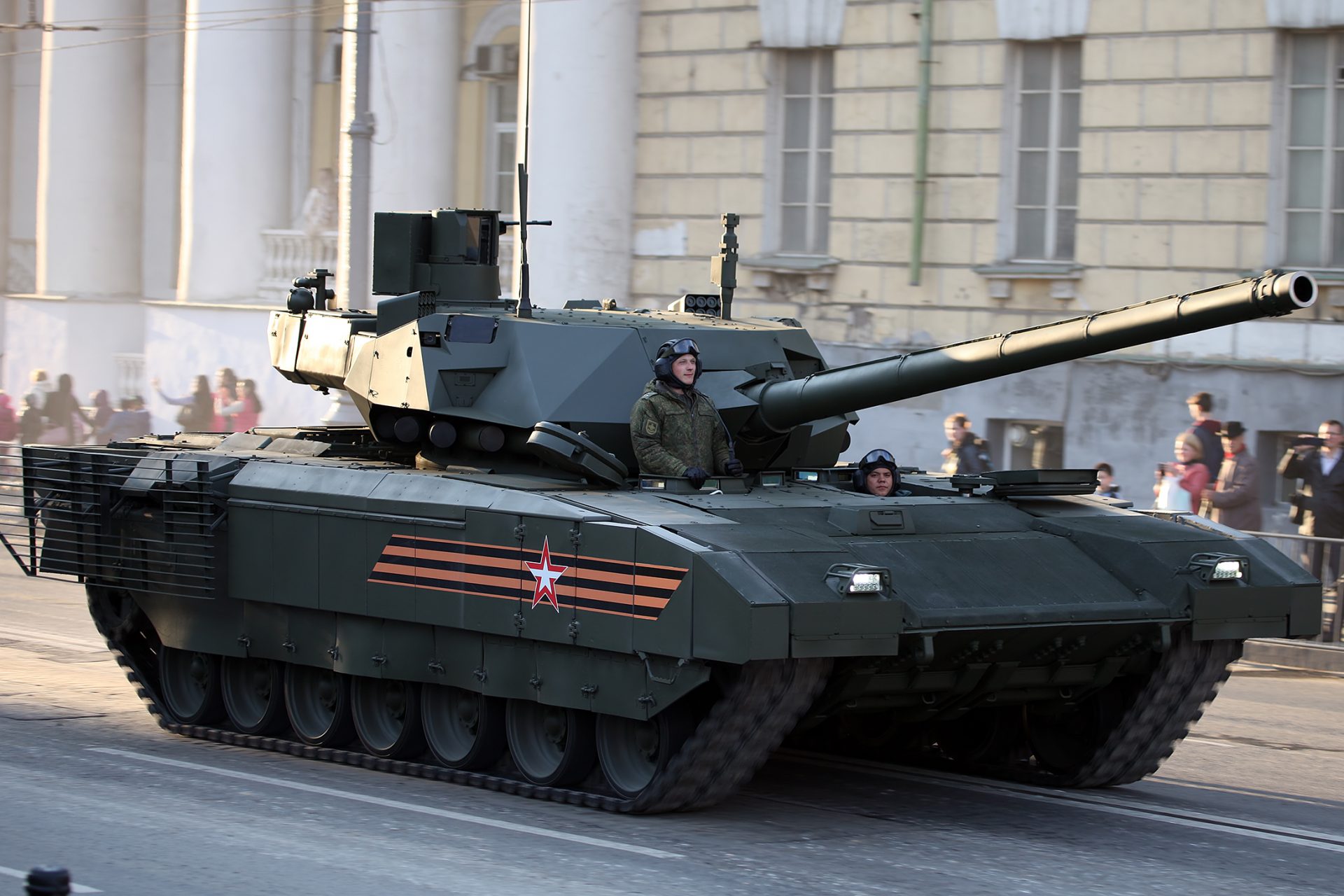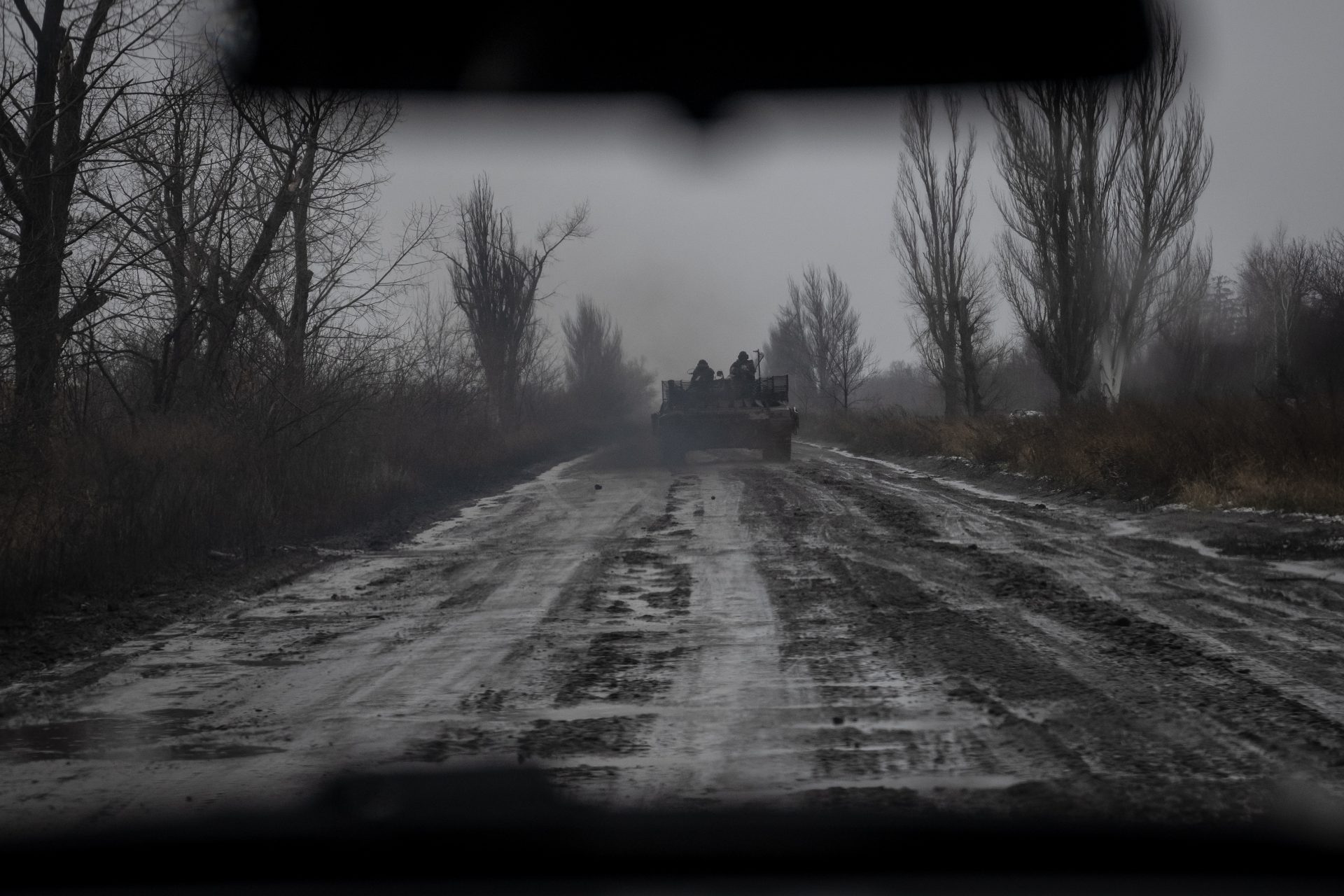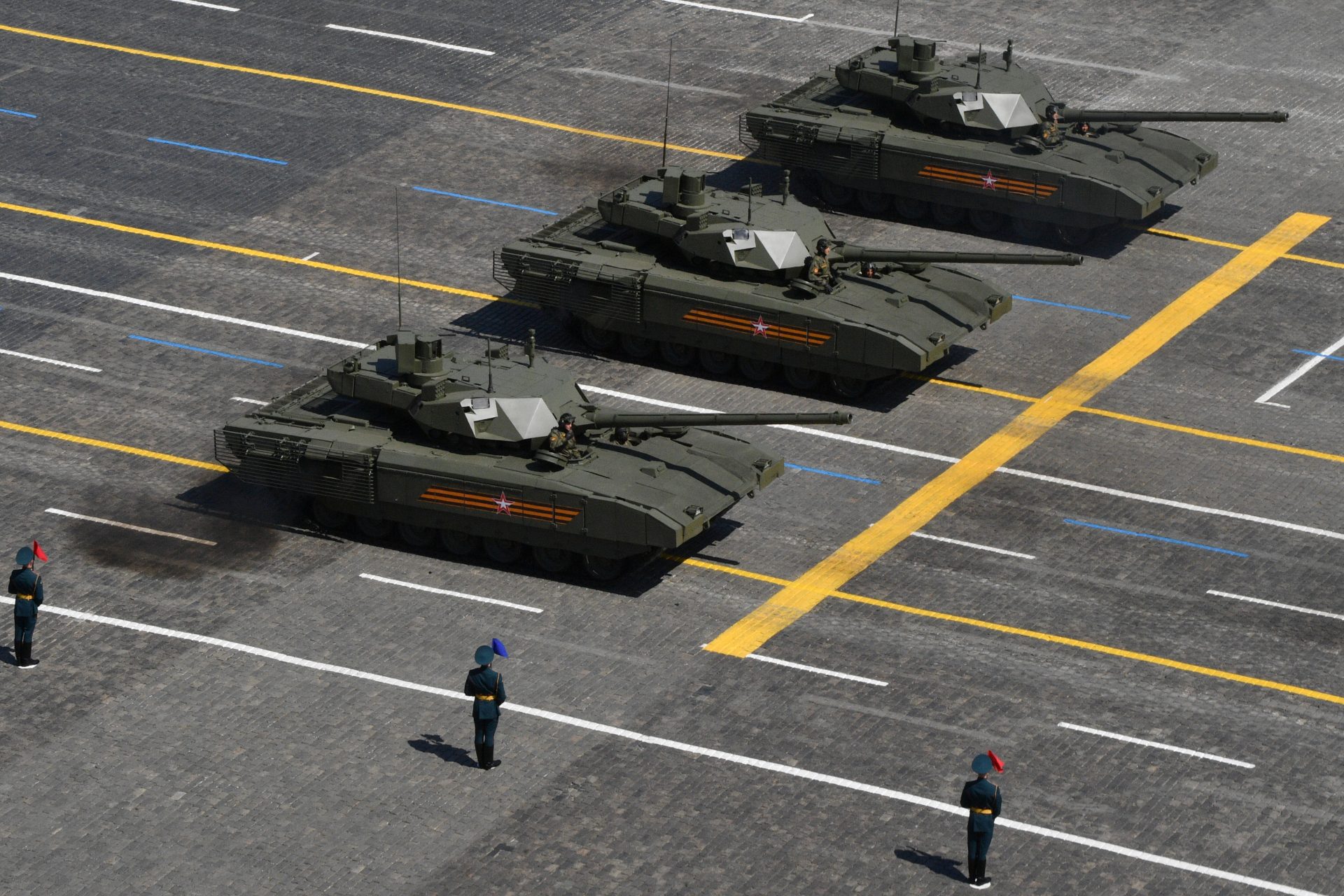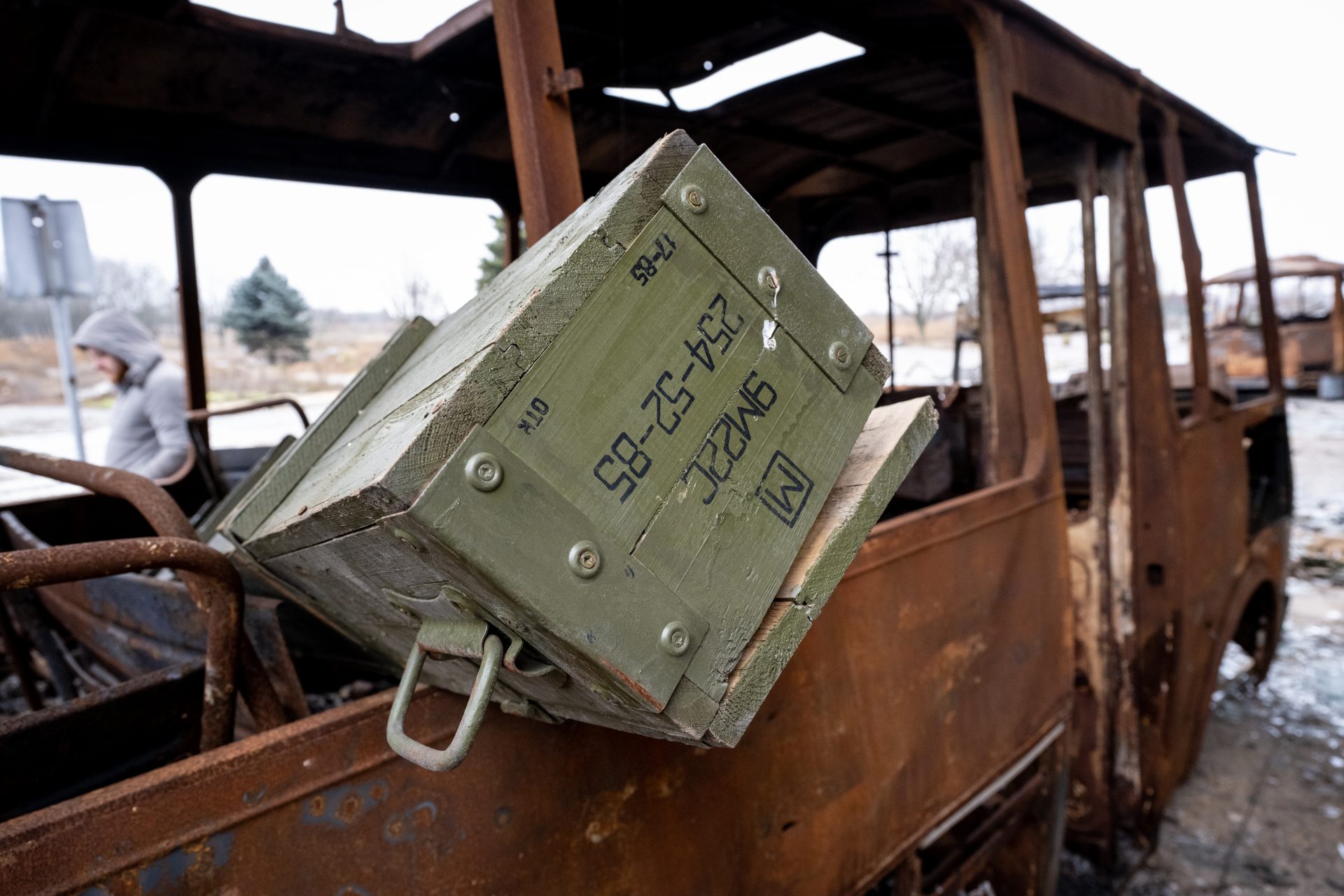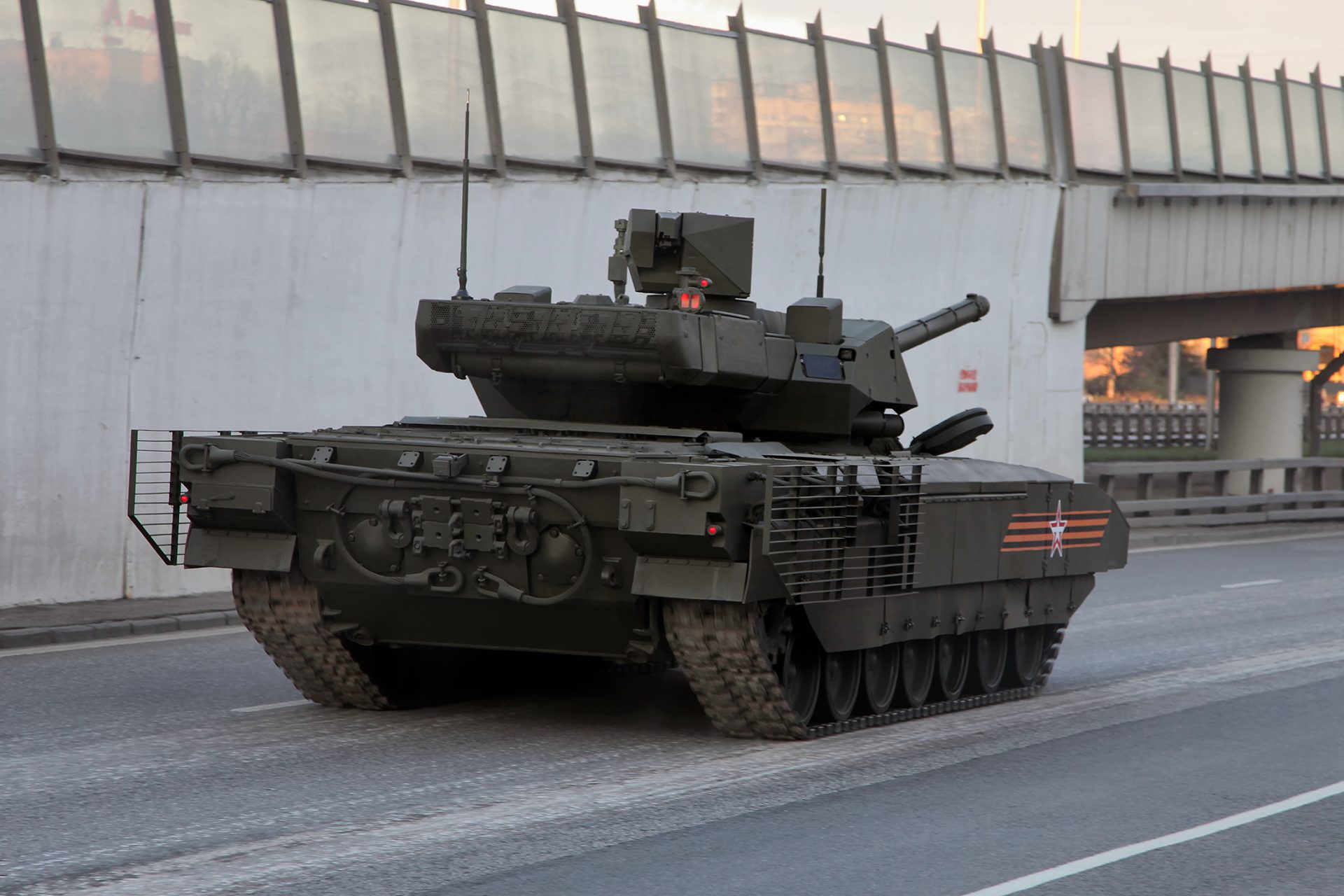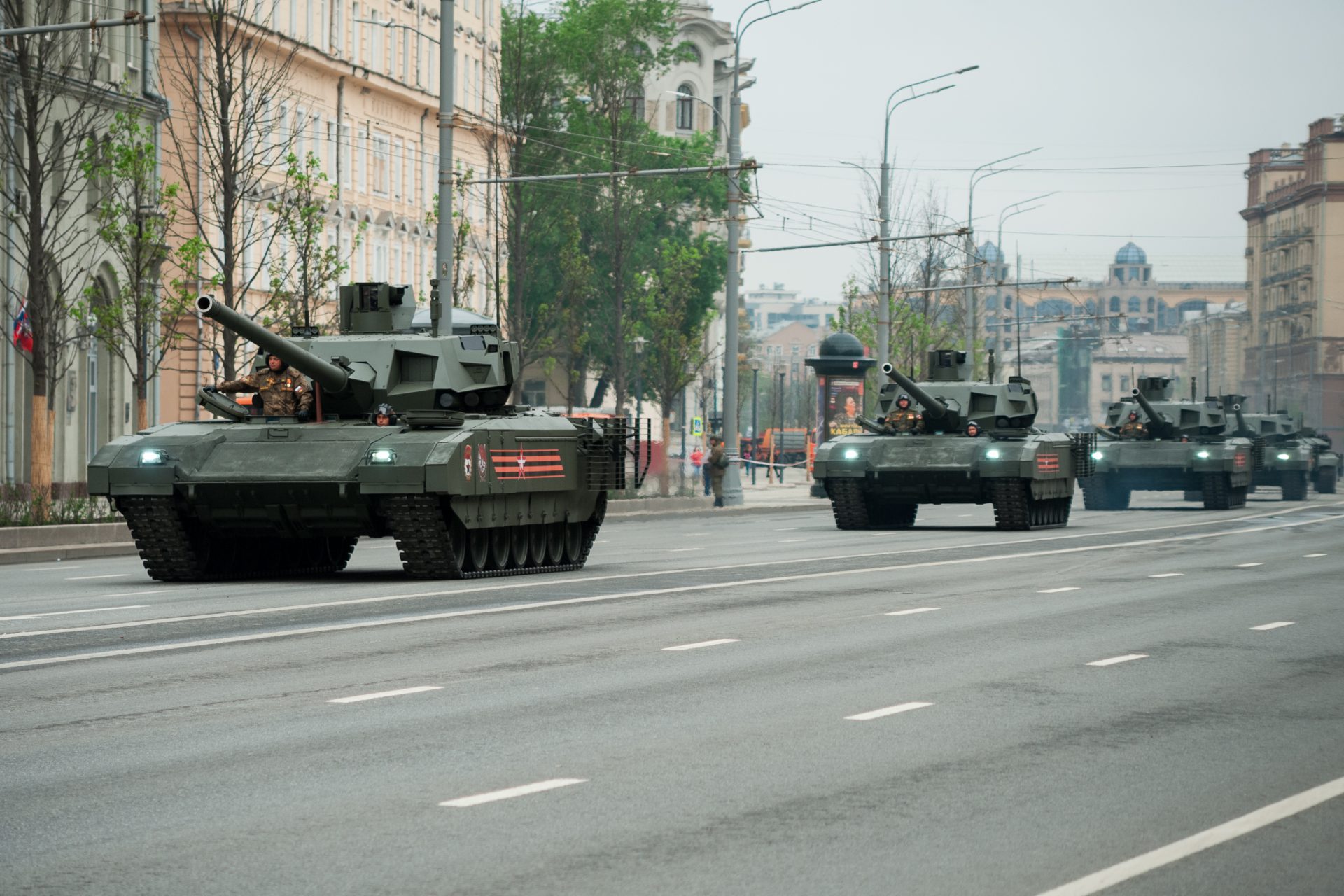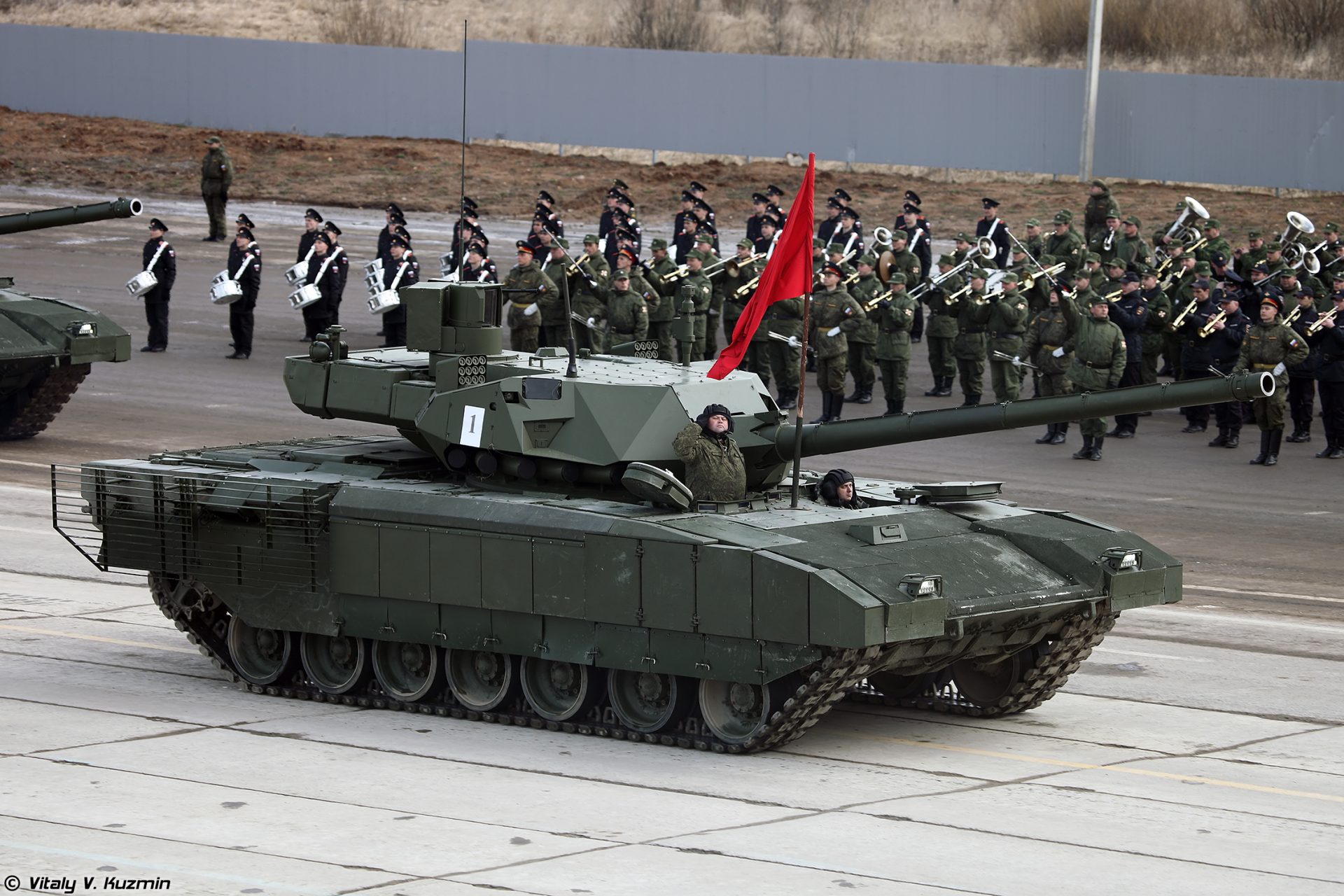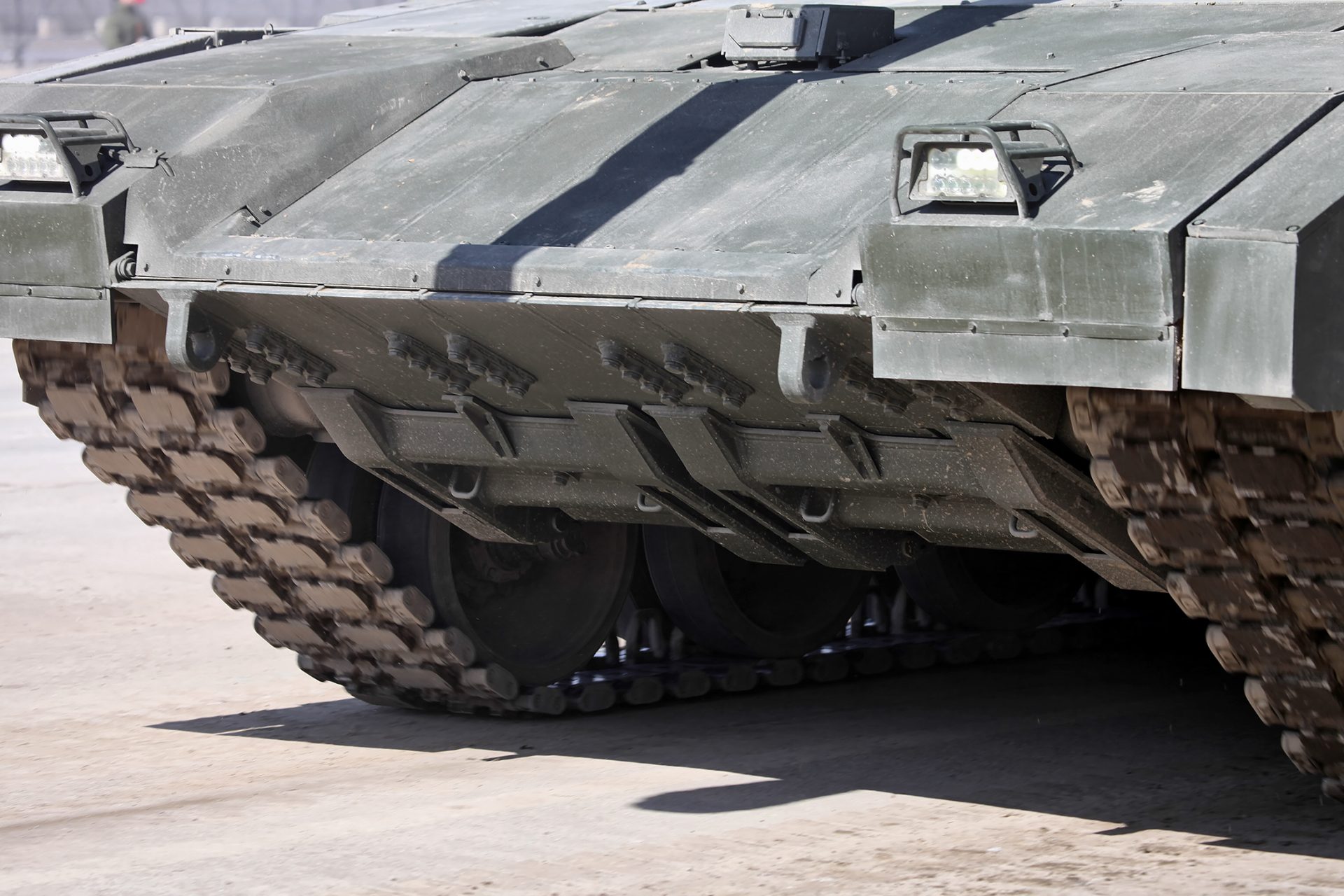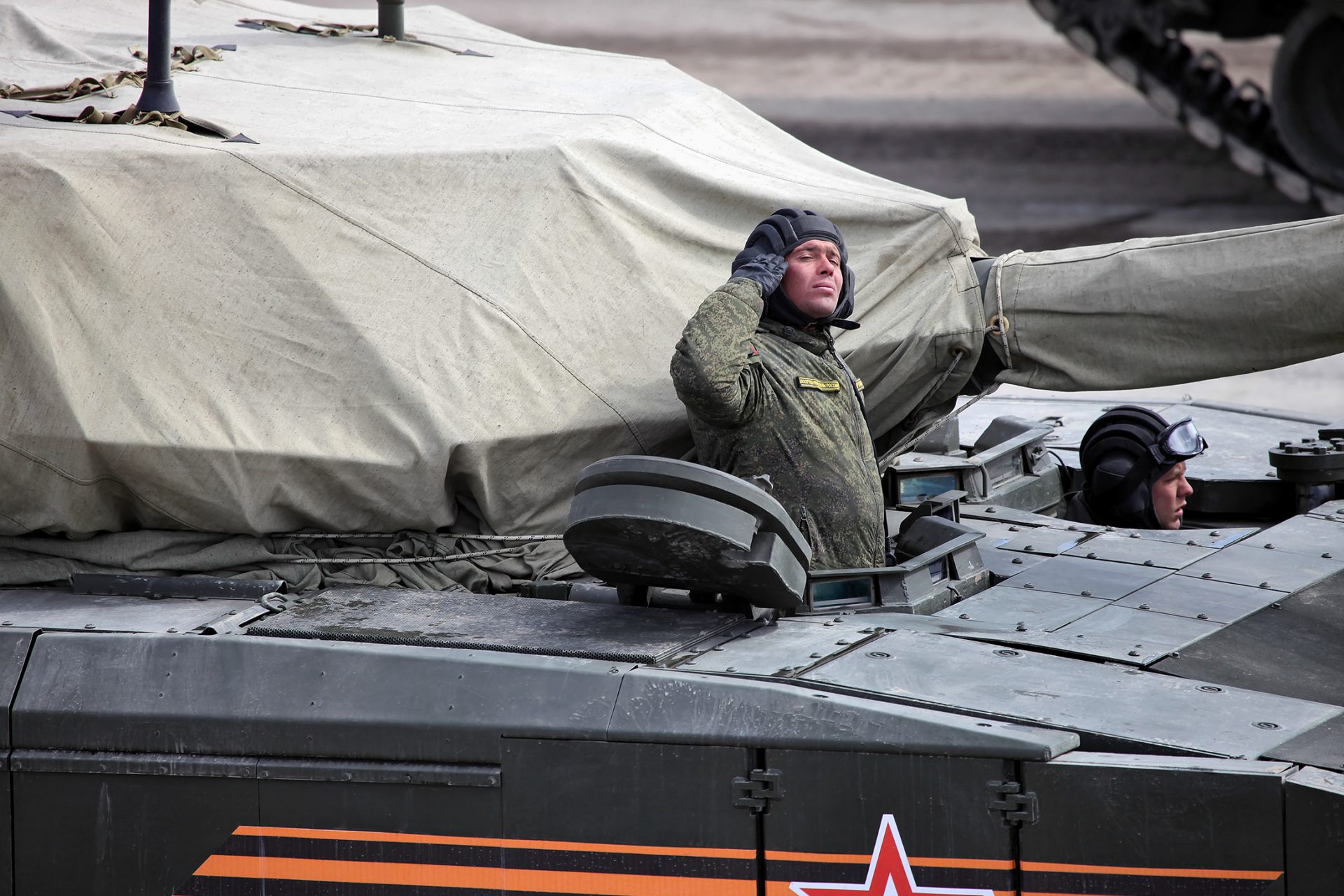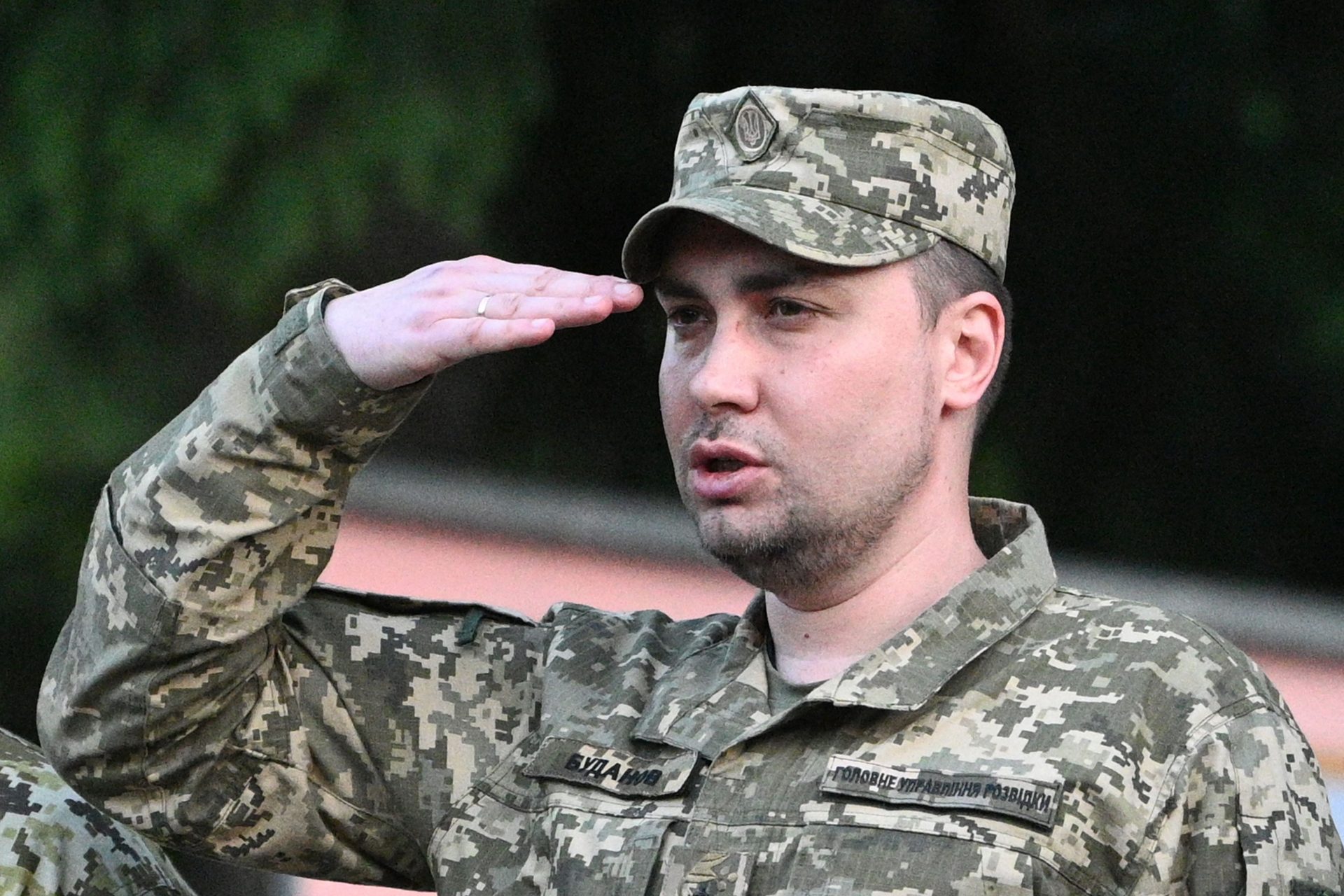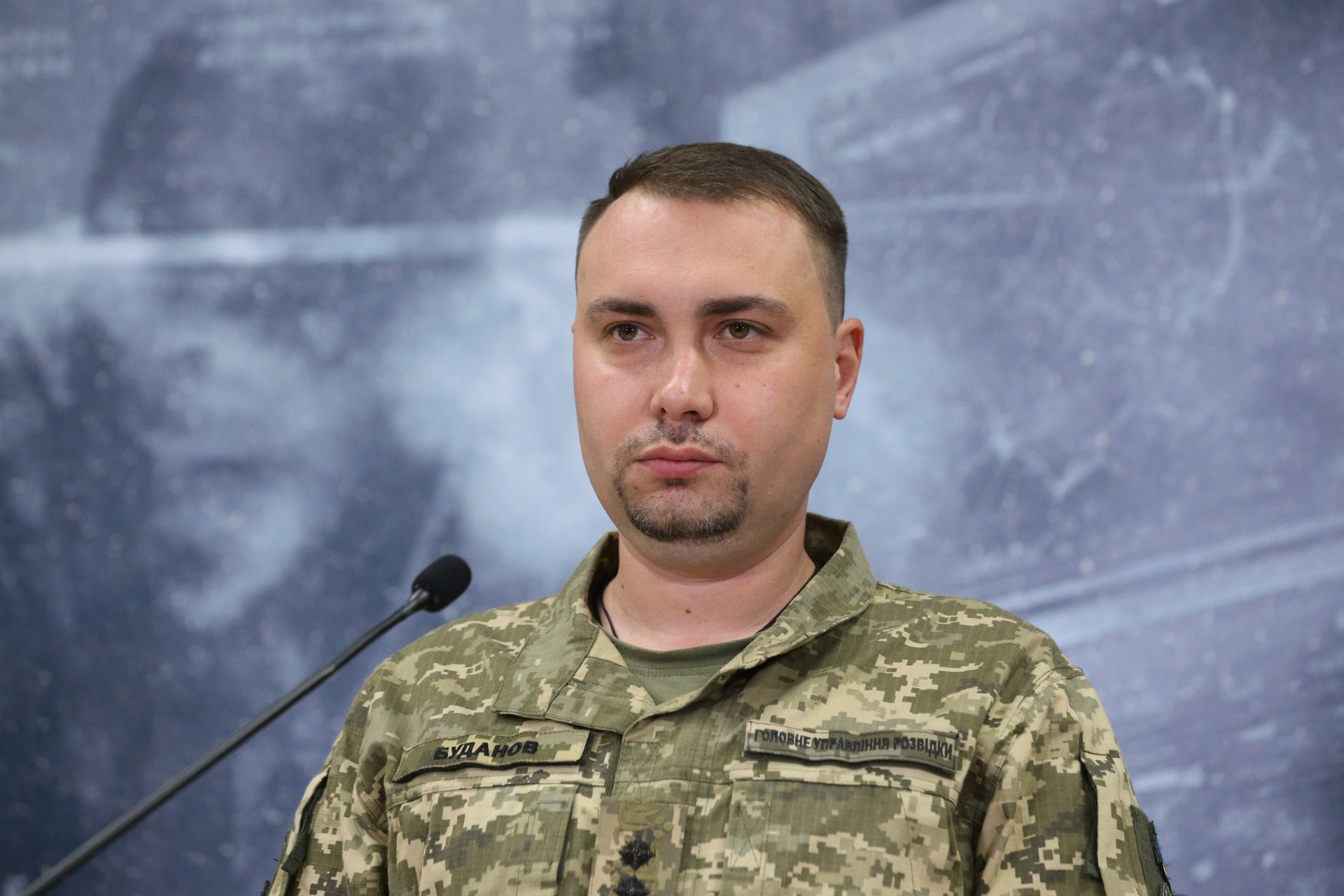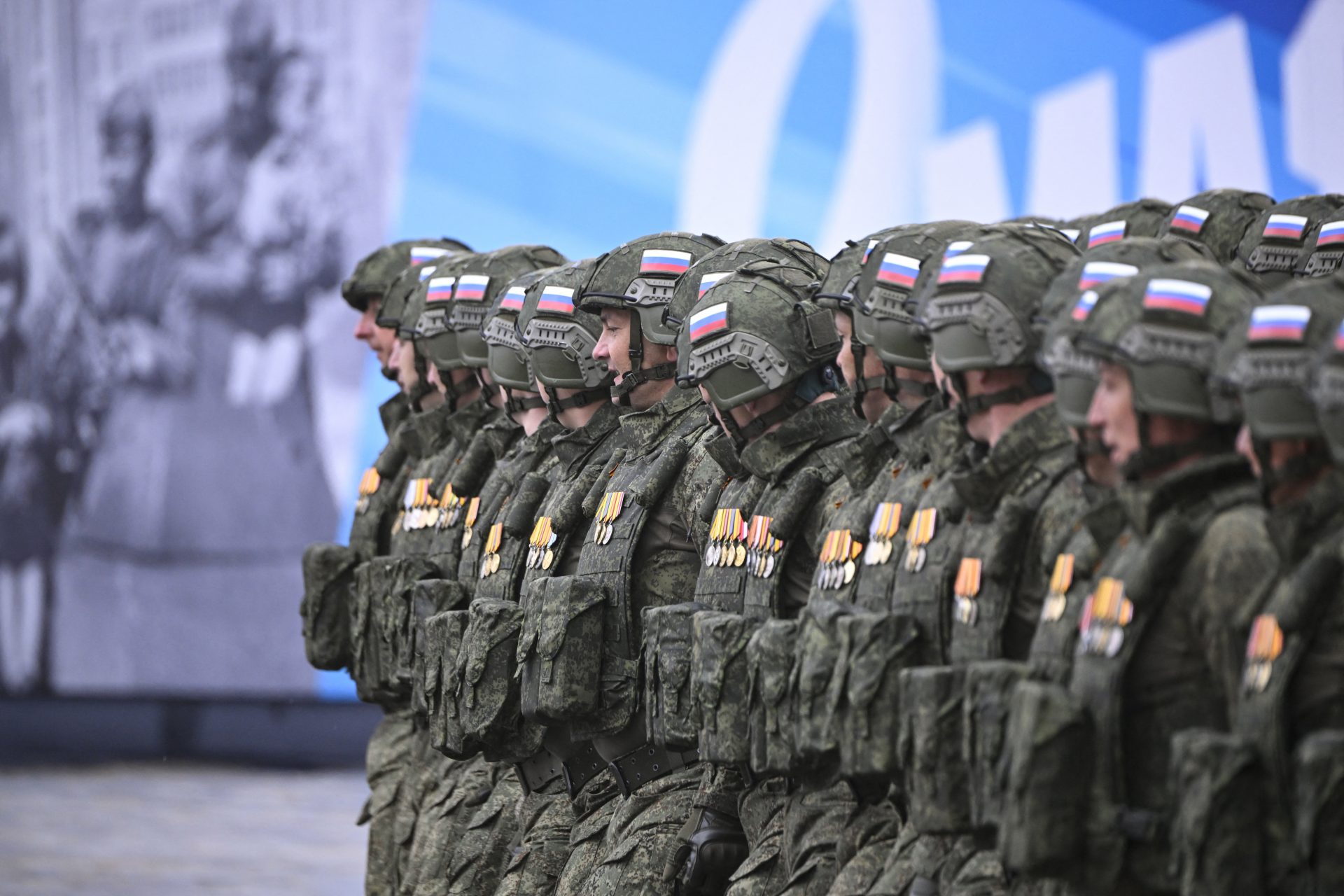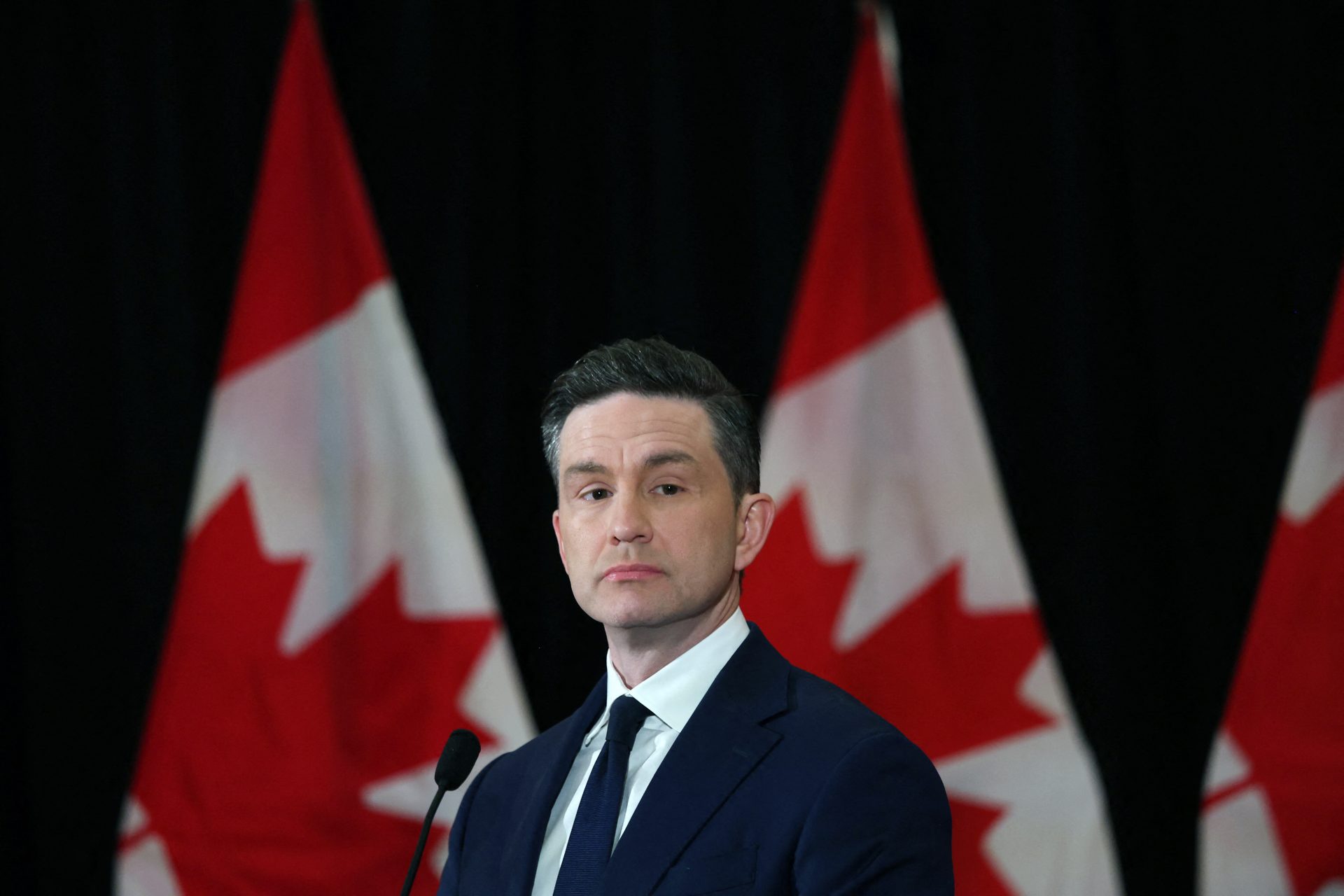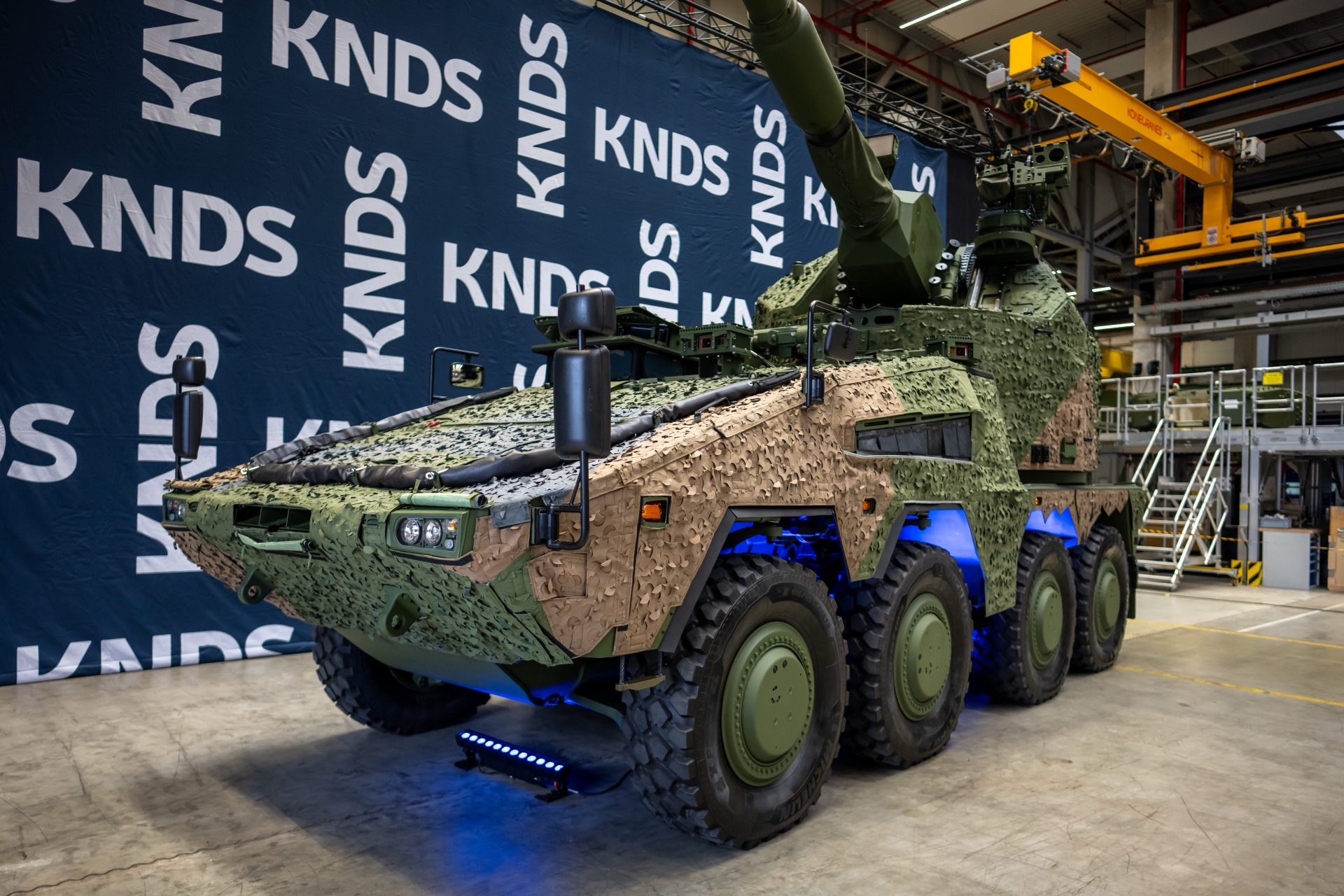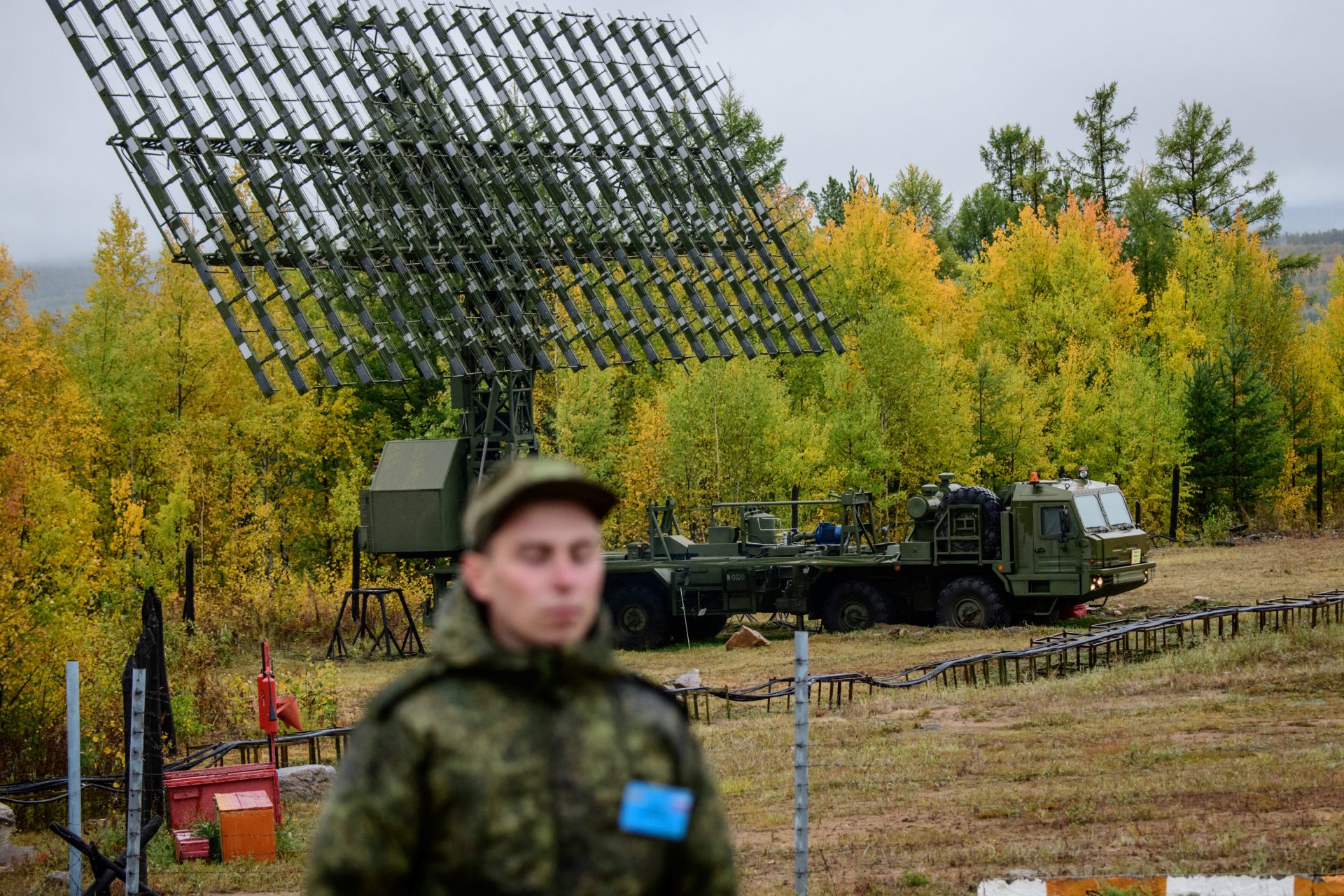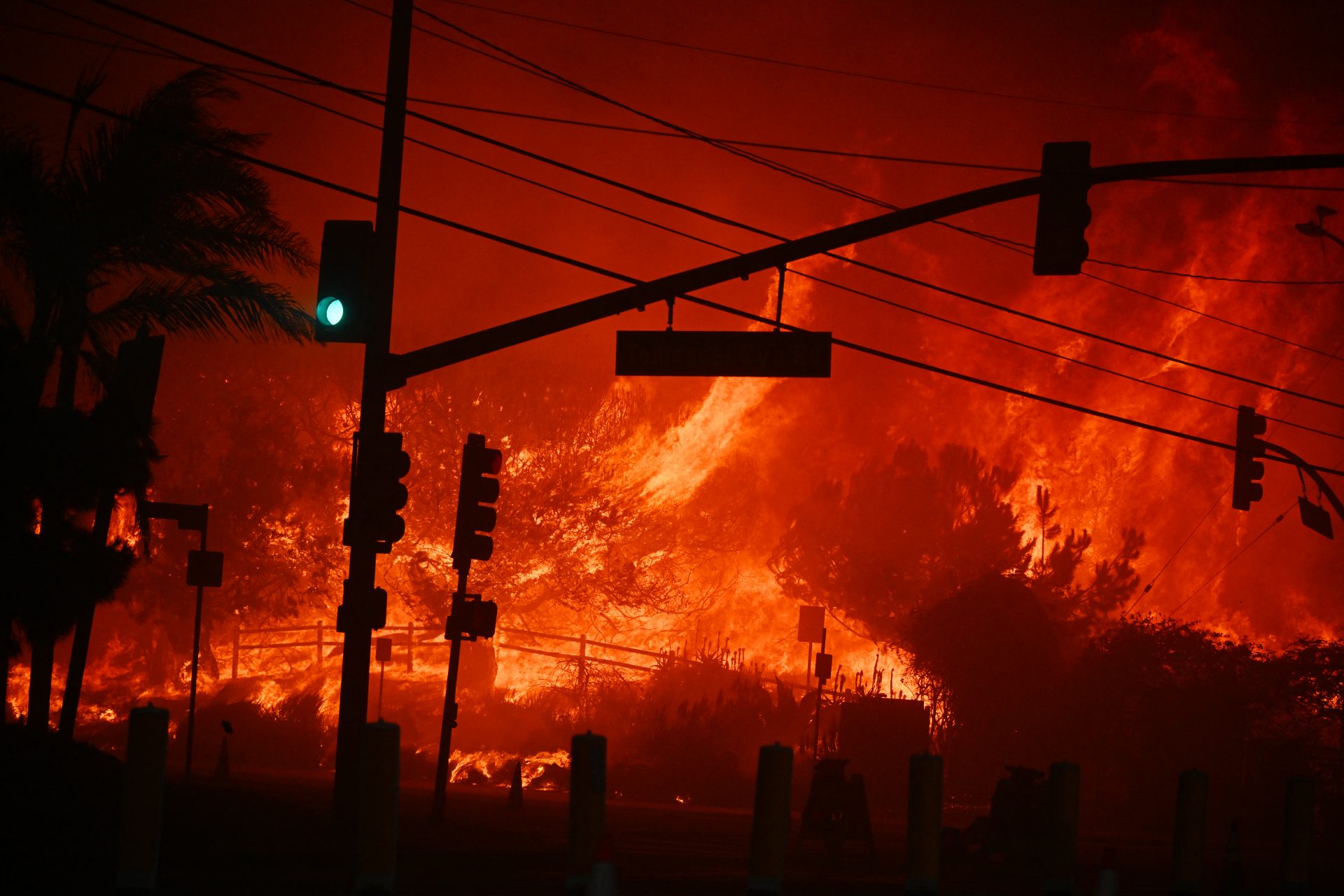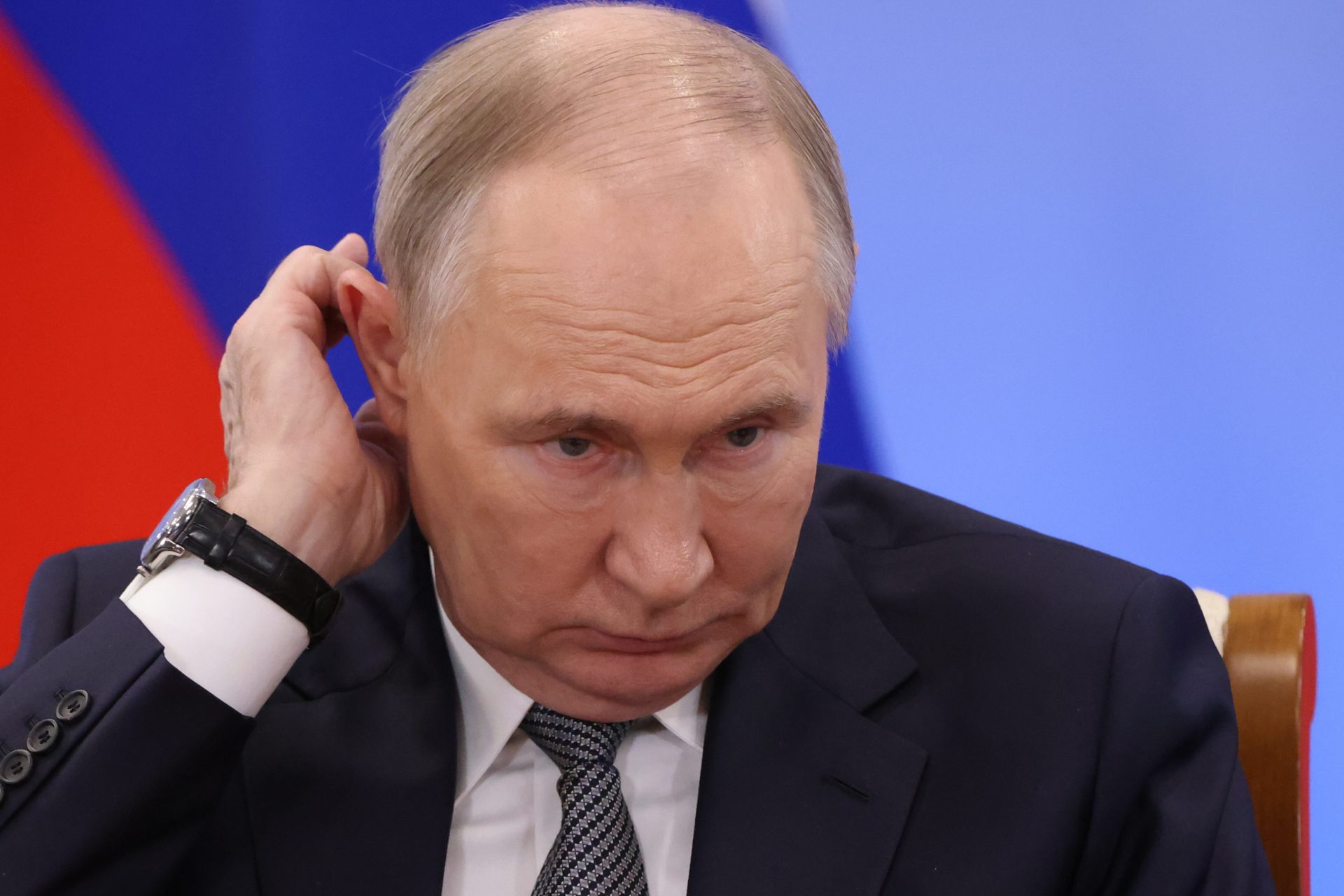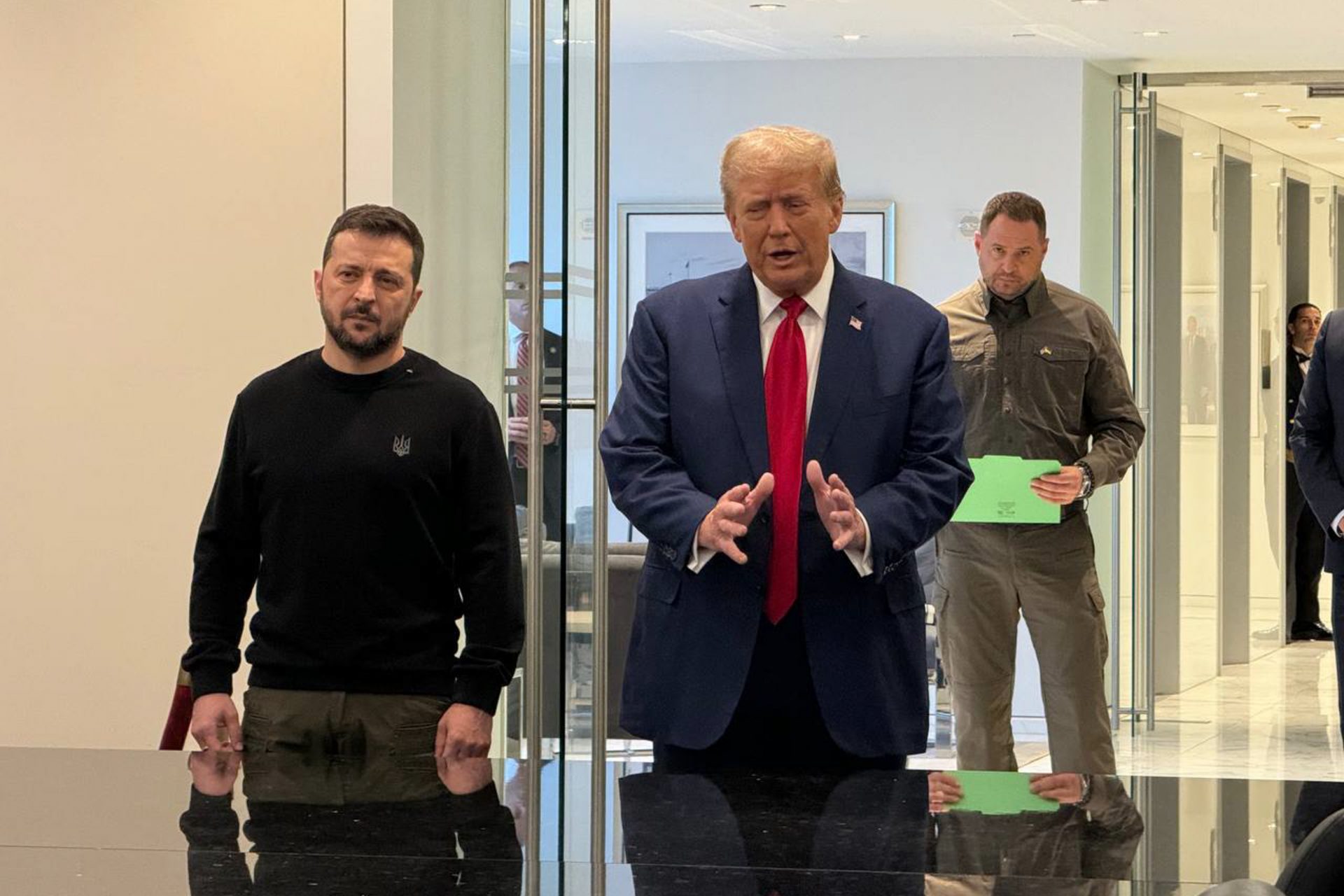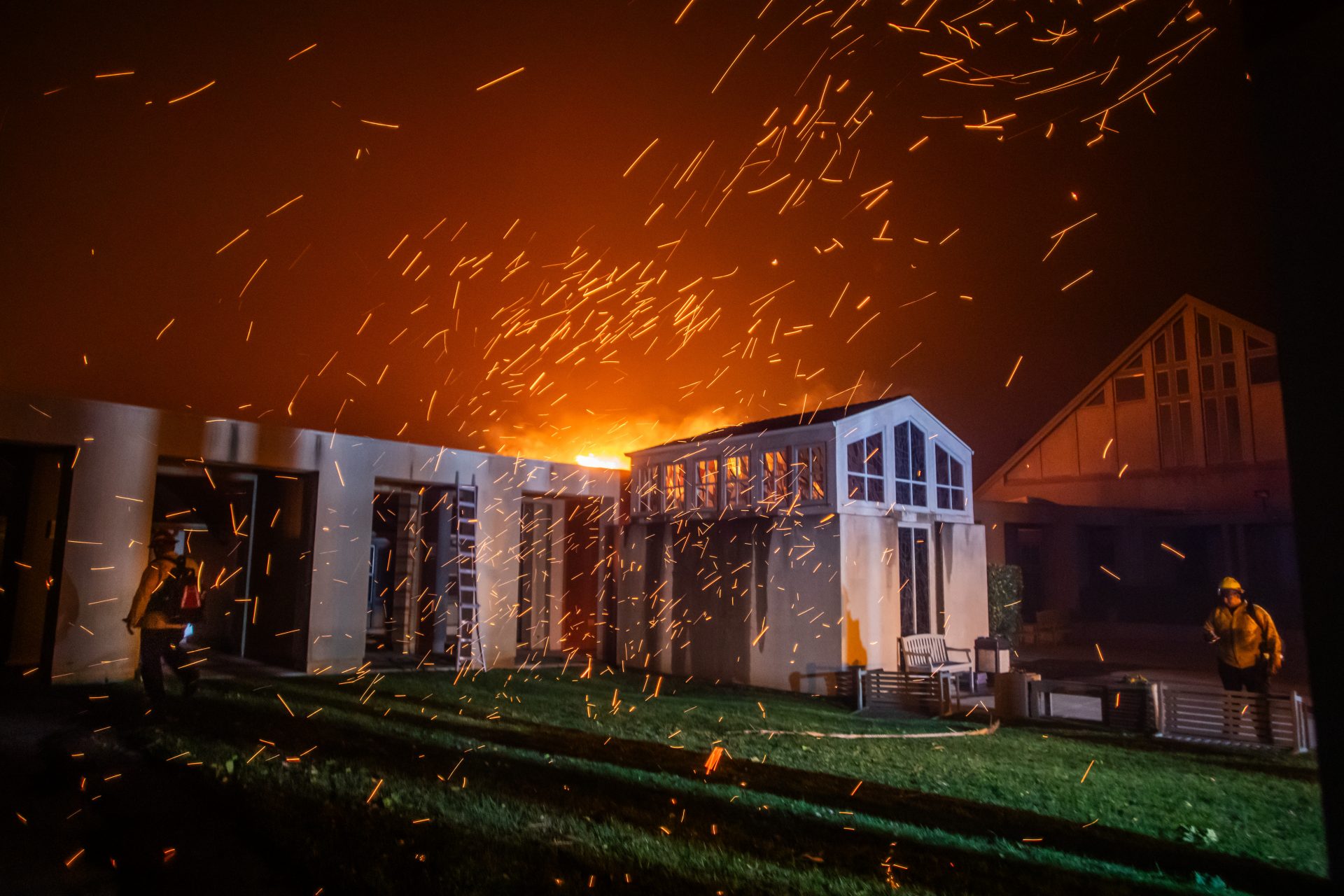Inside the Battlefield: What happened when Russia's best tank faced off against Ukrainian forces
The T-14 Armata, Russia's most advanced main battle tank, has been hailed as a pivotal addition to the Kremlin's military assets. Despite its capabilities, the tank has not been deployed on a large scale in Ukraine.
Why Russia's best tank hasn't been seen on the frontline in Ukraine isn't known, but Moscow did send the T-14 into the conflict for a brief period of time. So how did the T-14 do? Let's take a look at what we know.
In April 2023, Russian state media reports suggested that Vladimir Putin and his military commanders were planning to deploy the T-14 Armata for the very first to the frontline of the war in Ukraine.
Photo Credit Wiki Commons By Vitaly V. Kuzmin
On April 25th, RIA Novosti reported that the Russian Armed Forces had begun using the T-14 Armata in combat operations in Ukraine according to an "informed source" who spoke with the state media news outlet.
"Russian troops have begun to use the latest Armata tanks to fire on Ukrainian positions,” the source explained, adding that the tank's battlefield role was limited.
“They have not yet participated in direct assault operations," the source continued before going on to mention that the new tanks had been outfitted with additional armor.
Russian tank crews had allegedly spent all of 2022 learning how to use the T-14 Armata at a training ground somewhere in the Donbas according to RIA Novosti's source.
In January 2023, the British Ministry of Defence noted that Russia was likely considering sending a small group of T-14 tanks to Ukraine after they received satellite imagery of several Armatas at a training site known for its “pre-deployment activity” to Ukraine.
The British Ministry of Defence concluded that any deployment of the T-14 was likely to be a “high-risk decision” that would only be undertaken by Moscow for “propaganda purposes.”
The main argument behind the British Ministry of Defence’s assessment was that Russia lacked a significant number of T-14 tanks to make a real difference.
The British report also mentioned that the larger size of the vehicle would add additional logistical and supply chain issues for Russian forces, which was a major issue at the time for the Russian military.
“Production is probably only in the low tens, while commanders are unlikely to trust the vehicle in combat,” The Defence Ministry wrote, and that might explain why the advanced main battle tank had not been sent into direct assault operations at the time.
The T-14 Armata made its first public appearance at the 2015 Victory Day Parade in Moscow according to Newsweek’s Jon Jackson and was billed as Russia’s answer as the main competitor to the American M1 Abrams battle tank.
Armed with a powerful 125mm cannon, the T-14 employs an unmanned turret design that keeps its crew safe inside the vehicle's hull according to Insider’s Michael Peak, though he noted that the tank's thinner turret armor could make it more vulnerable.
Photo Credit: Wiki Commons By Vitaly V. Kuzmin
Popular Mechanics noted that the T-14 has an unparalleled range of fire and can reach upwards of 7.4 miles, this would come in useful for the combat role the tank is currently being employed for but it's unlikely to make a difference if the T-14 was used offensively.
Photo Credit: Wiki Commons By Dmitriy Fomin
If the war in Ukraine has taught us anything, it’s that main battle tanks are just as important as they’ve always been in modern war. But they’re also a lot more vulnerable to modern anti-tank weapons.
Anti-tank arms like the American Javelin and the Ukrainian-made Stugna-P have shown that multi-million dollar pieces of advanced technology can be lost in a matter of seconds if they’re not able to properly combat incoming missiles.
The effectiveness of the Armata on the battlefield, and the tank's ability to make a difference in the war, would have probably come down to its ability to defend itself, something that the tank’s Afganit active protection system does well according to RIA Novosti.
“I don’t understand how many of them there are, in what capacity Russia’s newest tanks might be used… but I guess in any case we’ll soon see how Armata… will stand up to Leopards and Abrams,” wrote German Kulikovsky on Telegram at the time the T-14 was deployed in Ukraine according to a Kyiv Post translation.
In July 2023, several T-14 Armata tanks were reportedly withdrawn from the fight in Ukraine according to The Russian News Agency (TASS), which spoke to a source who explained that the tanks were only used by armored forces from Russia's Southern Military District to see how they performed in combat.
Photo Credit: Wiki Commons By Vitaly V. Kuzmin
"Members of [battlegroup] South actively used Armata in combat. Several vehicles participated in combat to see how the tank would perform. After that, they were withdrawn from the frontline," the source told TASS reporters.
Photo Credit: Wiki Commons By Vitaly V. Kuzmin
TASS also noted there was no official information on the T-14's use in the war against Ukraine and that there had been no accounts in Western media detailing any battles in which the advanced Russian tank made a difference.
Photo Credit: Wiki Commons By Vitaly V. Kuzmin
However, it is unclear if any of the T-14 tanks deployed to Ukraine were in any battles. In September 2023, Lieutenant General Kyrylo Budanov, the Head of the Ukrainian Main Directorate of Intelligence, said at a press conference that the T-14 hadn't been seen in Ukraine.
"We haven't seen a single instance of this machine being used," Lt. Gen. Budanov said according to Business Insider, later pointing out that he believed Russia feared using the tanks since their capture or destruction of the tanks could hurt Moscow's future export markets.
More for you
Top Stories



